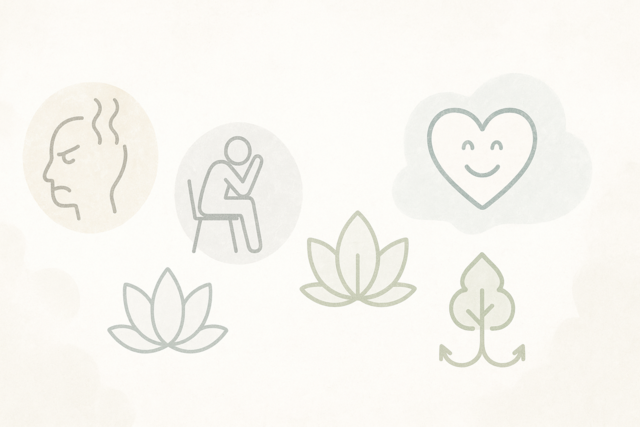The subjects of government, politics, war, and democracy are broad topics, each capable of being discussed at great lengths. Fortunately, however, the essence of their relation to the theme of sociology is more narrowed in focus.
A. Government and Politics: Definitions
By definition, government is explained by the American Heritage Dictionary as, "The act or process of governing, especially the control and administration of public policy within a political unit." Simplified, this means that government is responsible for the exercise of authority and oversight of management within a political setting.
Because of its interconnectivity with government, it makes sense to also define "politics." Once again, looking to the American Heritage Dictionary, politics is said to be "the art or science of government or governing, especially that of a political entity (e.g., nation) and the administration with respect to its control of internal and external affairs."
Because both of these structures, governments and political entities, are composed of people and affect people through their decision-making procedures, they both qualify as topics worth exploring from a sociological perspective.
B. Government through History
Obviously throughout history, as societies have evolved, their forms of ruling structures have progressed accordingly as well. Where nations are concerned, vast arrays of different ruling styles have prevailed. In fact, it was the elitism of the British power base that led the colonists to come to America as a means of establishing their own ruling system free of "taxation without representation."
C. Government and Political Structures
With respect to the ruling of nations, some of the most commonly identified types of governmental and political structures include:
- Aristocracy. This word literally means "rule by the best" aristocracy, Though often aligned with plutocracy, or governments ruled by the wealthy, it does not solely have to do with wealth. It may also deal with elitism or other forms of ruling power.
While the term was born out of ancient Greek times when those exhibiting bravery were viewed as being the best, it later was applied to the rulers of the British upper class and then to the Yanks and Blue Bloods of America.
- Autocracy. This is a political system governed by a single individual. The origin and meaning of "autocrat" can be traced back to a Greek term that when translated into English means, "self-ruler."
In the majority of autocracies, the duties tend to be spread among persons known as noblemen, religious figures, military leaders, or family members.
Note: Autocratic ruling structures have also been referred to as monarchies, dictatorships, totalitarian, and fascist societies.
- Coalition. Typified as a form of government that usually involves the collaboration of several party groups, it is said that coalitions tend to be common among countries engaging in war. This is because during wartime, no party is controlling the government and, in order to retain some degree of structure, parties collaborate to provide direction and stability.
Ironically, though, people opposed to coalition-style governments view them as being composed of an ad hoc assemblage of groups with vastly different beliefs that serve to create disharmony as opposed to unity.
- Communism. In communist societies, the dominant feature is the push to equalize the social conditions of life by abolishing the rights and possessions of its citizens. While this structure is presented as a method for accomplishing productivity, it is in fact a system under which individuals are not permitted to own anything privately. Rather, all properties are owned and distributed by the government with the equal utility of goods being the intended purpose.
As many know, freedom of expression and dissemination of information against the government are both forbidden acts within communist societies. In the view of their legislatures, this is to maintain the integrity of the collective society.
- Conservatism. More of a philosophy than a governmental system, conservatism reinforces the sentiments currently held by the majority; thus, it tends to encourage change only in moderate doses. As conservatism upholds the value of tradition, its serves a vital role in the preservation of favorable aspects of the past.
In his words, "It is with infinite caution that any man ought to venture upon pulling down an edifice that has answered in any tolerable degree for ages the common purposes of society."
- Democracy. Although this may be the form of government with which we in the United States are the most familiar, it still is a concept that proves hard to define. The complexity of the term "democracy" is due to the dramatic reformation it has gone through over time.
According to democratic terminology, the two terms "freedom" and "democracy," though not synonymous, can and are frequently used interchangeably. The close association of the two terms stems from the idea that democracy puts forth societal ideals dealing with the concept of freedom. However, democracy also embodies eras in the past when freedom was not a prevalent right within society.
Modern society, however, due of its mammoth size and vast complexity, requires what is known as a representative democracy, where citizens elect officials who, in turn, make political decisions, formulate laws, and administer programs for the benefit of the public good.
- Imperialism. This is the policy that aims to build and maintain an empire in which many states and peoples spread over a wide geographical area are controlled by one dominant state.
Much of the 20th century history of the Third World, for example, is of the dismantling of the legacy of 19th century European imperialism. An imperialist state can also be any other type of collectivist nation but not a type of individualist one. In Britain, the growth of classical liberalism can be said to have contributed to the negation of the belief in imperialism as being good.
- Pluralism. This is a form of democracy in which governing is carried out by means of a series of bargaining and compromising between competing leadership groups, such as business executives, labor parties, government officials, and others.
Note: Whereas some feel that America is a pluralistic society, others consider pluralism to be a myth and America to be an elitist society.
- Socialism. Even though the word "socialism" sounds like a positive idea wherein ruling structures are formulated based upon the shared ideals of the people, upon implementation, it more closely mirrors the structure of communism than that of pluralism.
Americans tend to shun the idea of socialism, but the system does have a strong level of acceptance in Europe, with the exception of Britain. Apparently, the British have adopted a more sovereign ideal in which they make their own decisions and are the masters of their own lives.
- Theocracy. Still to this day, some societies have retained the religious ideal of theocracy, whereby they are comfortable with the idea of putting their governance in the hands of religious persons, such as priests or clergy. A recent theocratic example is that of Iran, whereby immediately following the overthrow of the Shah in 1979, it was the Ayatollah Khomeini who was anointed to power.
D. Summation
Overall, the notion of adapting the governmental or political structure of a society from one form to another is an effort that requires a tremendous amount of momentum, support, and persistence. Yet some nations have evolved from that of communism to one that resembles something more of a democracy.





























